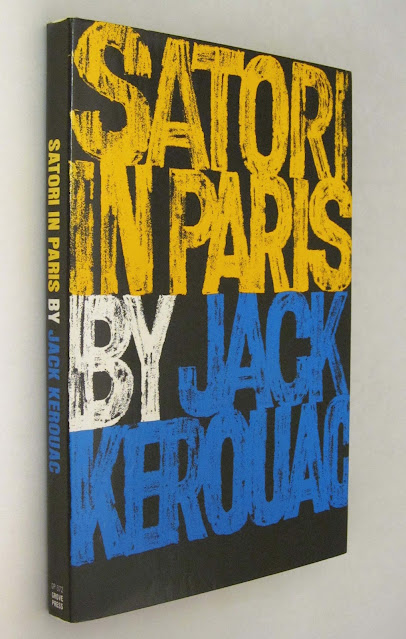Satori in Paris was a short autobiographical book (about a bit over 100 pages) by Jack Kerouac in which he describes as about:
“Somewhere during my ten days in Paris (and Brittany) I received an illumination of some kind that seems to’ve changed me again, towards what I suppose’ll be my pattern for another seven years or more: in effect, a satori: the Japanese word for ‘sudden illumination,’ 'sudden awakening’ or simply 'kick in the eye.”
Wherein in “On the Road” Kerouac’s brave novel about a cross country trip across the Continental USA he wrote about two characters on search of meaning and friendship stretched across thousands of miles, in Satori, Kerouac dishes out a remarkable narrative of his brief 10 days stay in Paris in his quest to trace his family name’s geneology.
The usual drunken spree present in earlier Kerouac novels are almighty present in this book, seems like our favorite writer gets the drive of writing his “spontaneous prose” amid massive hangover. Which to my endeavor i find to be an attractive style of writing and narrative.
In each Kerouac book that i’ve read, always there’s a favorite quote that stands out. In this book i’ve highlighted this passage:
“My manners, abominable at times, can be sweet. As I grew older I became a drunk. Why? Because I like ecstasy of the mind. I’m a Wretch. But I love love”
The romantic side of Kerouac, devious as it may seem infects individuals like me to live such a life amid a grotesque setting and mundane existence but with forever awe at his surroundings, people around him, embracing other’s attention in such setting as a semi deserted park, singing or just downing beers and whiskey in pubs.
In Satori, a book Kerouac wrote at the twilight of his life, gone are the reckless years of the era of “On the Road” but effective still in terms of profoundness in how he described a mere 10 day stay in a place where he thinks his name originated.
Did he accomplished his goal in the end? more than what he ever planned in the first place. In the end Kerouac accomplished a “Satori” an illumination, that ironically he never got to display or live through “ for another seven years or more” as Kerouac would die early in 1969.







0 Comments:
Post a Comment